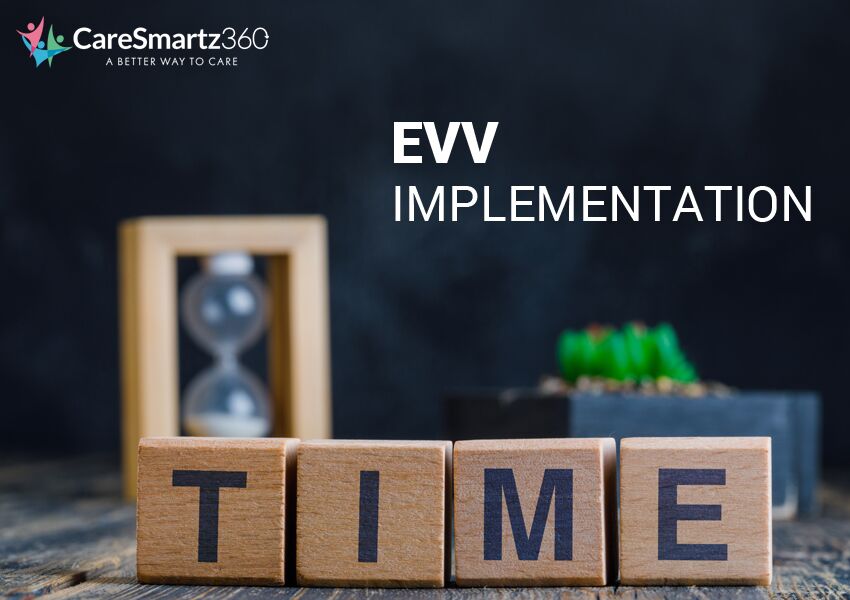
Home care agencies were asked to implement EVV before January 1st, 2020. They were then provided an extension of 1 year under the Good Faith Efforts Request.
Agencies that are operating in states that requested for Good Faith Efforts Requests, got the approval from CMS (Centers for Medicare & Medicaid Services) to implement EVV before January 1st, 2021.
Now, the deadline under Good Faith Efforts Request is over. The majority of the states have already adopted it, and have found a statewide aggregator to help implement and train home and personal care businesses to reap the benefits of EVV. However, a number of states are still in progress to complete the EVV implementation process.
In the wake of the global pandemic Covid-19, several home care businesses had to shut down operations temporarily, leaving agency owners, caregivers, and other home care staff confined to their homes. As a result, the states where home care agencies were in-process to implement EVV had to put their efforts on hold. Consequently, there are few states where the implementation deadline has been extended to a later time in 2021. To find out which state has a new deadline, visit the state health department website or Medicaid.
Such a situation also varies from state to state, but there certain aspects that shouldn’t be ignored while claiming Medicaid bills. The caregiver agencies must present electronic records such as documents containing information about care services.
This information should contain mandatory fields like the clock in and clock out times of the caregiver, number of hours dedicated to a single client, adequate information about the type of service, details of the client (address, contact number, age), and details of the caregivers. Failing to provide these details through an EVV system may lead to rejection of claims, as per the guidelines issued by CMS.
The basic idea of implementing EVV is to save the federal government funds by avoiding Medicaid fraud. Besides the advantage to the government, what EVV could offer the individual caregiver agencies besides just compliance?
The digital transformation of businesses is perhaps the main reason why agencies need to switch to mobile solutions that leverage EVV. With the right integration of software, agencies could be benefited in many ways. Some of the advantages of EVV to agencies are:
As per the Centers for Medicare and Medicaid Services (CMS), “Every service that demands an in-home visit provided they are included in the claims beneath the personal care and home care services are undeniably subject to EVV implementation.”
In simple words, if a healthcare or personal care service is offered at home and is covered under Medicare or Medicaid for claims, EVV is mandatory. It also states that care services offered at a nursing home or hospitals do not require the implementation of EVV.
It is high time for home care agencies to get prepared if they aren’t in the final stages of implementation. Post-implementation, agencies will adhere to EVV compliance by recording the clock-in and clock-out time of the caregivers for every visit and transmit that collected data in real-time to the state in the right format.
With the deployment of smart phones and tablets, home care agencies could eventually do a lot more than just meeting the EVV mandate. Improved communication, along with boosting productivity, could be witnessed with dedicated software to manage care delivery.
In other words, the implementation of EVV not only unleashes numerous possibilities in the home care industry but also provides solutions to speed up the process more smartly and reliably for meaningful and measurable results.
Our users reported 95% customer satisfaction in 2024. Schedule a personal walkthrough to see CareSmartz360 in action.